Hugo Stay Home
Hugo Chavez, the Venezuelan president, has clearly been enticed by the Libyan drama, where his longtime friend and ally, Muammar al-Qaddafi, is under siege from rebel forces.
The year 2019 marks the first year since new leaders in Brazil, Colombia and Mexico took office. We can now see more clearly the way their policy decisions have affected the energy sector and opportunities for investment. Meanwhile, Argentina holds presidential elections later this month. Venezuela, in turn, faces a worsening economic crisis as oil production plummets. Industry experts, government officials, and corporate representatives, convened to discuss these issues and their regional impacts on October 2, 2019, at the Inter-American Dialogue.
[caption id="attachment_88097" align="alignleft" width="300"]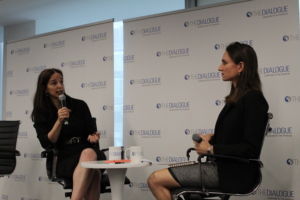 Luisa Palacios (L) chats with program director Lisa Viscidi (R)[/caption]
Luisa Palacios (L) chats with program director Lisa Viscidi (R)[/caption]
Luisa Palacios, chairwoman of CITGO, gave the opening keynote remarks, highlighting how US sanctions have affected the US-based corporation. She discussed the steps CITGO has taken to ensure operational and financial stability, despite its complicated relationship with Venezuelan state oil company PDVSA. CITGO remains dedicated to assisting with Venezuela’s reconstruction following a political transition, Palacios noted, mentioning that the corporation could help with the loss of technical expertise the country currently faces. She closed her presentation by underscoring the need for continuous support from the US government.
[caption id="attachment_88109" align="alignright" width="300"]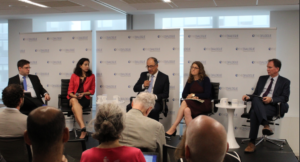 (L-R) Jason Fargo, RoseAnne Franco, Juan Carlos Echeverry, Risa Grais-Targow, and Deputy Assistant Secretary Kurt Donnelly discuss challenges for upstream investment.[/caption]
(L-R) Jason Fargo, RoseAnne Franco, Juan Carlos Echeverry, Risa Grais-Targow, and Deputy Assistant Secretary Kurt Donnelly discuss challenges for upstream investment.[/caption]
In the first panel, speakers predicted increased upstream investment in Latin America. In Brazil, the “Transfer of Rights” auction will open up billions of barrels of reserves for oil exploration, and Colombia’s recent approval of fracking pilot projects will allow companies to test conditions for the development of unconventional resources.
[caption id="attachment_88100" align="alignleft" width="300"]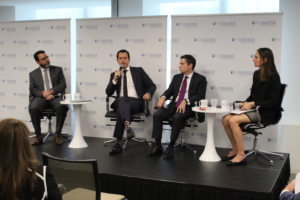 (L-R) Tirso Selman, Hector Castro Vizcarra, Leonardo Moreno and Lisa Viscidi discuss the power sector in Latin America.[/caption]
(L-R) Tirso Selman, Hector Castro Vizcarra, Leonardo Moreno and Lisa Viscidi discuss the power sector in Latin America.[/caption]
The second panel debated whether Latin America’s immense renewable energy potential means the market alone is enough to drive the transition. Chile only became a leader in renewable energy after a series of government enacted policy reforms. And because the energy market is not isolated from economic policy, a likely new government in Argentina is causing investors alarm. Panelists also highlighted the need for policies to expand and improve the stability and reliability of transmission networks.
[caption id="attachment_88106" align="alignright" width="300"]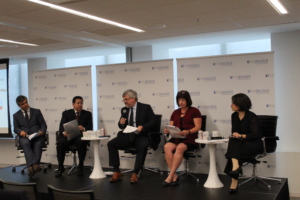 (L-R) Antero Alvarado, David Goldwyn, Jeremy Martin, Deputy Assistant Secretary Elizabeth Urbanas and Jane Nakano speak on third panel.[/caption]
(L-R) Antero Alvarado, David Goldwyn, Jeremy Martin, Deputy Assistant Secretary Elizabeth Urbanas and Jane Nakano speak on third panel.[/caption]
The third panel examined the role of natural gas and LNG in the region. Speakers said the United States experience could prove beneficial for regional integration and partnership on developing natural gas resources. Natural gas can diversify energy sources and improve energy security. Given the importance to Argentina’s economy of bringing in foreign investment, panelists speculated that the next government would continue to develop the Vaca Muerta shale play.
Regional cooperation and sound national policies remain essential to the development of opportunities in oil, renewables and natural gas. As the governments in Latin America advance their energy policies, analysts will continue to watch the region to see how investors respond.
Read coverage of the Third Annual Latin America Latin America Energy Conference in S&P Global Platts, Argus Media, Reuters, Natural Gas Intel, and Oil & Gas Journal.
Please note that due to technical issues part of the conference webcast is not available.
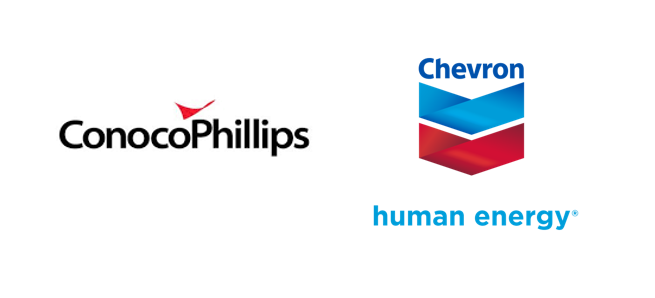
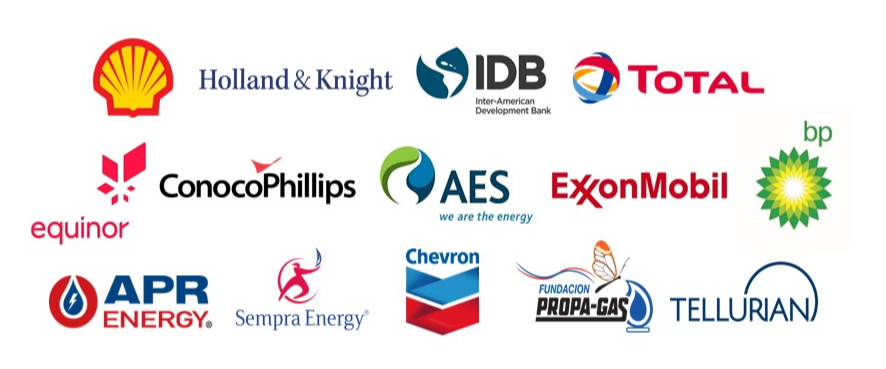
Hugo Chavez, the Venezuelan president, has clearly been enticed by the Libyan drama, where his longtime friend and ally, Muammar al-Qaddafi, is under siege from rebel forces.
The question remains if Mexico has achieved a degree of institutional development consistent with its participation in those organizations.
Focusing on transnational crime is a top priority of the Obama administration’s policy in Latin America.
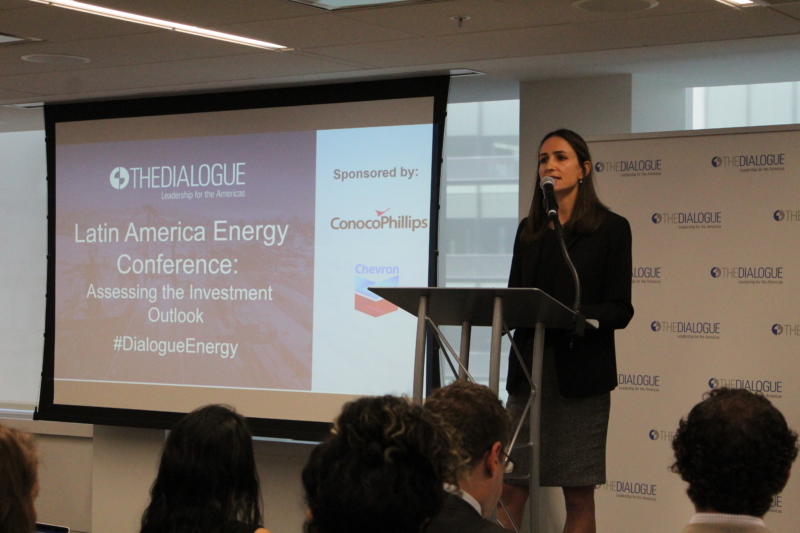 Sarah Phillips / Inter-American Dialogue
Sarah Phillips / Inter-American Dialogue